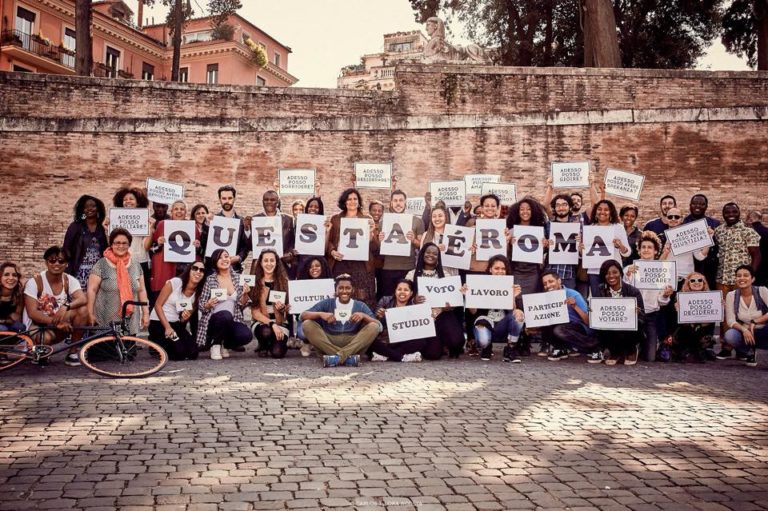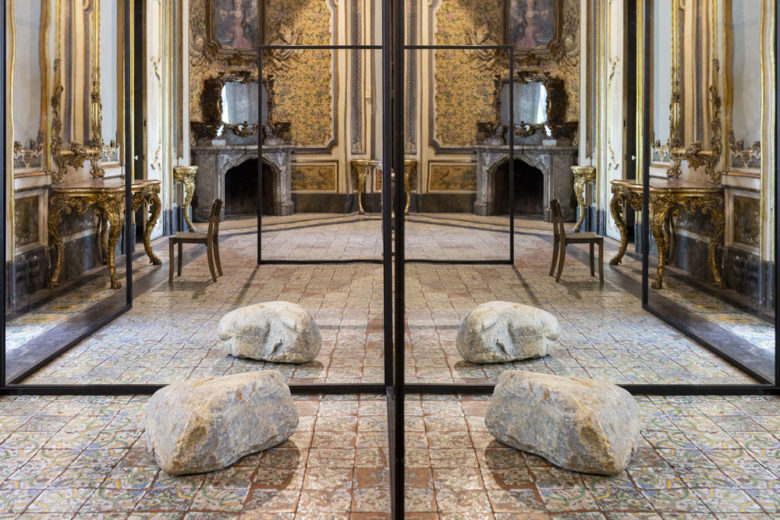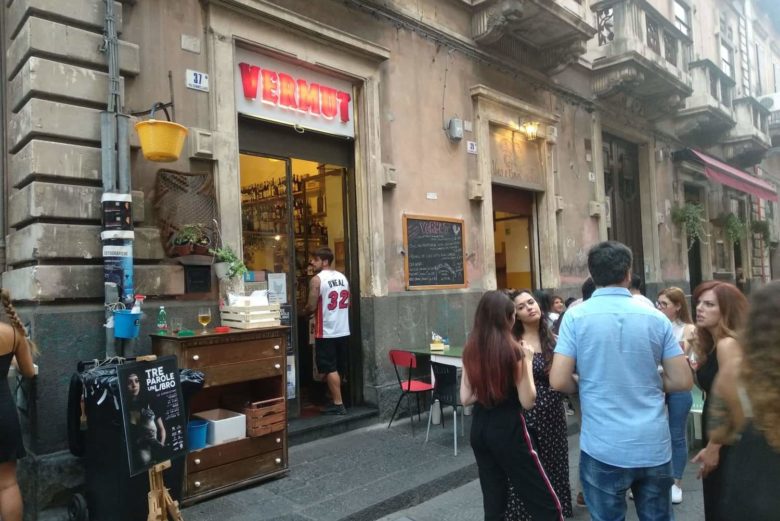Elvira, the almond-shaped eyes Sicilian girl that defends the rights of new Italians
Born in the Philippines but arrived in Sicily when she was a year old, the young woman helps the second-generation immigrants to find their place in society through an association she personally founded after being discriminated in her childhood. This is her way to react to the current government and to the recent “Decreto Salvini”
«How can a Minister put words like immigration, illegal immigration, reception, security and citizenship all together? How can he talk about stability with a decree that was created to respond to an emergency, but that actually extends the time you need to wait before getting Italian citizenship? Where is the consistency in this?»
These are the words of Elvira Ricotta Adamo, a 30-year-old woman born in Manila (Philippines) and arrived in Sicily when she was only a year old through international adoption. For the past 10 years she has been dealing with social justice and has fought against racial discrimination, especially against the second-generation immigrants, i.e. those young people born and raised in Italy by immigrant parents. «Politicians should protect and accompany young people towards their future and personal fulfillment, but instead of changing the reform of a law that does not allow second-generation immigrants to automatically get Italian citizenship, they obstruct the proceedings», adds the young Sicilian, referring to the security and immigration decree promoted by the Italian Interior Minister Matteo Salvini and approved on September 2018, because of which the term for the concession of the Italian citizenship was extended.
«With QuestaèRoma (eng. ThisIsRome) – comments Elvira – an association that I founded together with other traveling companions in 2013 after my relocation in the capital, we are dealing with carrying out some struggles to protect second-generation immigrants. The “Decreto Salvini” not only demolishes these battles, but also increases the sense of disorientation and loss of identity among young people. Many of them feel embittered, hurt and discouraged, and would like to leave the country because can’t see a future for them in Italy. I wonder why a boy born in Rome from foreign parents and who has never been to the Philippines or Sri Lanka shouldn’t feel Italian». Not having citizenship while growing up in Italy involves many problems, such as not being able to join public competitions or not having the right to participate in a simple school trip. «It is true that having citizenship does not necessarily defend you against discrimination – says Elvira. – For example, I am an Italian girl in name and in fact (and with Italian citizenship), but still I was a victim of racism due to my facial features. Despite everything, however, I am convinced that the struggle for citizenship is our battle-mother, after which we can think of all the problems concerning social integration».

EDUCATING TO DIVERSITY. What animates Elvira is her desire to help. She grew up in Piazza Armerina, a municipality in the province of Enna, where, since she was a child, she was forced to face some difficulties due to her “diversity”. Thus, from a very young age she joined social battles to protect the weakest and then continued her fights in Catania, where she attended the Faculty of Law. There she got to know the world of second-generation immigrants, which includes not only the children of immigrants born in Italy, but also young people arrived in our country by adoption. For a few years she was elected as a member of the national executive of the UDU (student union) and dealt with civil rights and equal opportunities, as she still does in Rome. However, there is still a long way to go. «In all these years of battles – she continues – nothing has changed, or perhaps many things have worsened. With QuestaèRoma we promoted the Italy is me too campaign, collecting more than 100 thousand signatures to present a new law on citizenship to the Chamber, in the hope of granting this right automatically to anyone born in Italy». A dream that seemed to become true in 2015, when the proposal got the OK by the Chamber, but that ended two years later following the dissolution of the Parliament.
WHAT IS THE FUTURE OF RECEPTION IN ITALY? «We must not forget that Italy was a country of emigrates. We all have an uncle, a grandfather or an old relative living in Canada or Germany. And even now many young people are leaving this land to seek their fortune abroad. Then why leaving Italy to look for a better job means being a hero, while escaping from war and death seems to not be allowed?». There should be a way to change the points of view on this phenomenon, making Italy a more welcoming country and reducing racial fear. According to Elvira, «we should grant good quality information not only in newspapers or on TV. Today news is spread mainly through social media, where politicians are increasingly legitimized to express their hatred and resentment with tweets: this can only harm public opinion. We need to invest in education not only by talking about integration and social rights in schools and universities, but also by capitalizing resources on the “training of trainers”. I am convinced that most disasters come from adults: I remember that, as a child, a teacher naively told my classmates to treat me as if I were equal to them, cataloguing me as “different” precisely because of this. At the end of the 1980s, however, in classrooms there was only one immigrant over more than 25 children, while now we are talking about a good 40%. We need to be represented at school and we will continue to work hard for that, even if we also need politicians willing to do something to really change things and bring our proposals into Parliament».
Translated by Eva Luna Mascolino



